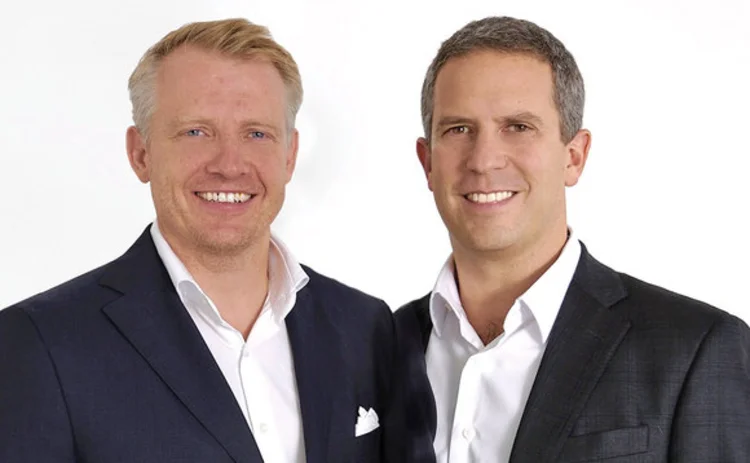
Emissions house of the year: CF Partners
Specialist knowledge of the carbon market is crucial to the London-based company's success

The early buzz around emissions trading has been little more than a faint hum in recent years. New cap-and-trade schemes have been launched in places such as California, Quebec and South Korea, but liquidity is patchy and hopes of a global market have so far been dashed. Meanwhile, the world's biggest carbon market – the European Union Emissions Trading System (ETS) – has seen a mass retreat of market-makers, particularly investment banks.
But while the market has languished, the withdrawal of the biggest players has given more specialised companies a chance to gain market share. One company that has seized the opportunity is London-based commodity trader CF Partners. While other firms have laid off staff, it has added to its European emissions team during the past two years. Now, with three traders and an 11-strong sales force, CF Partners has one of the largest carbon desks in Europe, market participants say.
At the core of CF Partners' success is its intimate knowledge and understanding of global carbon markets, says partner and co-founder Jonathan Navon. "There isn't a single type of carbon credit globally that we couldn't price and know who the likely buyers and sellers would be," he says.
This is an impressive feat, given the sheer variety of carbon credits and offsets in use as part of compulsory and voluntary schemes across the world. When working with clients, Navon says CF Partners helps identify the instruments that are best aligned with their overall emissions strategy – whether that is purely to meet compliance obligations under the EU ETS, for example, or as part of a wider corporate and social responsibility programme.
Clients say the firm's specialist service compares favourably with that of investment banks. "When it comes to carbon, I would be more comfortable trading with CF Partners than with most banks, as their knowledge of the market is second to none," says a Switzerland-based treasurer at a US manufacturing company. "CF Partners' advantage is its market knowledge and understanding of companies' needs."
There isn’t a single type of carbon credit globally that we couldn’t price
Although the company is present in several carbon markets around the world, including New Zealand, Japan and China, the EU ETS remains CF Partners' core focus. The firm is highly active in European Union Allowances (EUAs) and is one of the biggest market-makers in EUA options. It traded with 220 clients in the ETS in 2014 and its gross revenues grew by just under 20% compared with the year before. That has occurred against a backdrop of sluggish transaction volumes, which dropped 18% to 7.7 gigatonnes of carbon dioxide equivalent in 2014, says Oslo-based data vendor Thomson Reuters Point Carbon.
Some of CF Partners' most interesting work is conducted on behalf of governments. During 2014, for example, it helped a European country meet its climate policy targets by optimising its use of carbon credits. Under the Kyoto Protocol, EU member states have individual emissions targets, but are permitted to meet some of these by using certified emissions reductions (CERs) – offsets that stem from emissions reduction projects in developing countries. This particular deal involved CF Partners sourcing several million CERs from project developers, market participants and CF Partners' own portfolio of credits.
Hedging for corporate clients has been another area of focus in 2014, including compliance work with European airlines. The EU ETS was extended to cover flights within the European Economic Area in 2012. "Some firms might prefer to stay away from airlines due to credit issues, but we have to be active in the aviation sector, as emissions are our core business," says Navon. "The sector needs a lot of information and support."
Elsewhere, CF Partners has been providing financing to companies by making use of spare EUAs on their books, an activity few investment banks have been willing to carry out in recent years. A typical trade last year involved CF Partners buying a company's EUAs for a fixed term, after which the firm agreed to buy them back. The short-term funding this provided helped the company to smooth out seasonal changes in its working capital, says Navon.
Only users who have a paid subscription or are part of a corporate subscription are able to print or copy content.
To access these options, along with all other subscription benefits, please contact info@risk.net or view our subscription options here: http://subscriptions.risk.net/subscribe
You are currently unable to print this content. Please contact info@risk.net to find out more.
You are currently unable to copy this content. Please contact info@risk.net to find out more.
Copyright Infopro Digital Limited. All rights reserved.
You may share this content using our article tools. Printing this content is for the sole use of the Authorised User (named subscriber), as outlined in our terms and conditions - https://www.infopro-insight.com/terms-conditions/insight-subscriptions/
If you would like to purchase additional rights please email info@risk.net
Copyright Infopro Digital Limited. All rights reserved.
You may share this content using our article tools. Copying this content is for the sole use of the Authorised User (named subscriber), as outlined in our terms and conditions - https://www.infopro-insight.com/terms-conditions/insight-subscriptions/
If you would like to purchase additional rights please email info@risk.net
More on Awards
Joining the dots: banks leverage tech advancements for the future of regulatory reporting
The continued evolution of regulatory frameworks is creating mounting challenges for capital markets firms in achieving comprehensive and cost-effectiveawa compliance reporting. Regnology discusses how firms are starting to use a synthesis of emerging…
Markets Technology Awards 2024 winners' review
Vendors spy opportunity in demystifying and democratising – opening up markets and methods to new users
Derivatives house of the year: JP Morgan
Risk Awards 2024: Response to regional banking crisis went far beyond First Republic
Risk Awards 2024: The winners
JP Morgan wins derivatives house, lifetime award for El Karoui, Barclays wins rates
Best product for capital markets: Murex
Asia Risk Awards 2023
Technology vendor of the year: Murex
Asia Risk Awards 2023
Best structured products support system: Murex
Asia Risk Awards 2023
Energy Risk Asia Awards 2023: the winners
Winning firms demonstrate resiliency and robust risk management amid testing times








